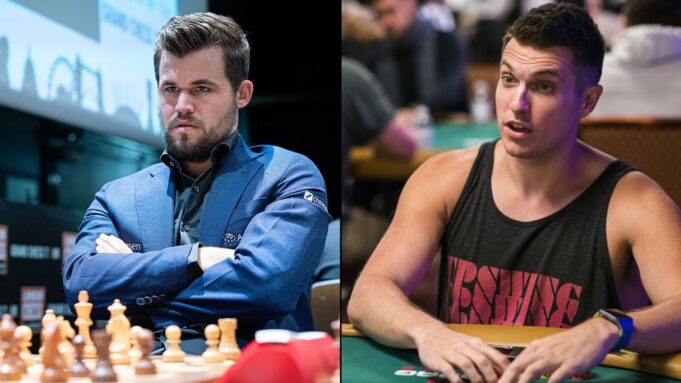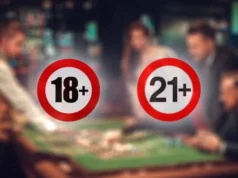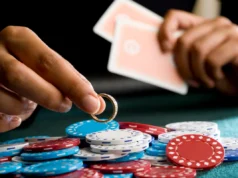A competitive sport asks a player to perform his optimal to best his opponent, so we can say that is the feature all games, professionally organized or not, share. Still, when it comes to sports relying on individual performances, we should underline that a personal skillset is a must-have if the competitor intends on achieving anything worth mentioning. The aforementioned brings us to the 2 seemingly distinctive professions, chess, and poker playing. Namely, why do chess players make good poker performers? If the query intrigues you, we suggest you consult the rows below in search of answers.
The Tiers
Even though professional chess players can occasionally entertain the mass by demonstrating their dominance via entering a simultaneous exhibition, they would rarely sit at a board with someone of lower ranking than themselves, unless it is an official challenge. The same goes for professional poker players.
The catch lies in the ability to bare the pressure of the opposing side. A shark would rarely sit at the same table with a fish, while the grandmaster would rarely meet a beginner, except for trivial encounters or educational purposes.
Tiers are necessary not solely for the sake of the title, but also for making the clear difference between the experience and knowledge on one side, and the opposite on the other. Now, when the similarities between poker and chess are in question, we should underline that the fighting does not solely happen on the table, but also between the minds of the opposing sides and that is why a chess player can qualify for a decent challenger as long as they know how to play the game itself.
The Strategy
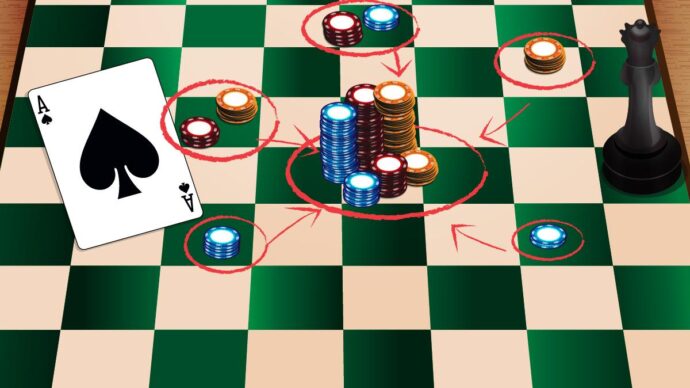
Chess players often memorize whole games by heart, which grants them supremacy over the person sitting across them. Naturally, the same approach to the game is expected from both parties, thus, the true challenge is to anticipate what your adversary’s next move is going to be.
In poker, regardless of the style of preference, one must compete with others and place bets not only depending on what they have in their hand but also by guessing what the rest of the gambling crew holds. The action craves a certain amount of risk, no matter how probable the positive outcome might appear. Therefore, poker enthusiasts also tend to perceive the manner of thinking of their opponents.
The Timing
In chess, when you run out of time, you lose the game, regardless of the situation on the chessboard. Therefore, it is of utter importance to focus on nothing else but the game itself and react almost as instantly as the other competitor draws their move. The concept allows chess players to develop a skill set that not only is vital for their profession, but also for playing poker. In a nutshell, the sooner an individual makes their move, the less time for the reaction of the guy on the other side of the table remains.
Nowadays, both chess enthusiasts and passionate players practice their skills online at websites such as casinos-n1.com. Even though the setting of a virtual environment differs from the traditional one, it can help you enhance your skills and improve performance through continuous repetition. To conclude, if you give a chess grandmaster additional time to design their next move as they would have in a poker match, rest assured they will use it well.
One-on-One Combat
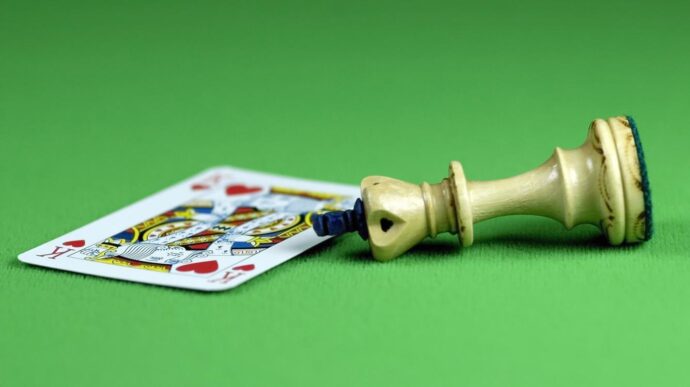
As we have already mentioned, grandmasters of chess specialize in performing in tournaments unless they participate in simultaneous exhibitions. What is also important to mention is that proficient chess players start their careers at an early age, making their way through the ranks as they grow up. The development process impacts the way they handle particular situations since they basically have to work under pressure from day one.
Considering that poker playing implies using real cash as a stake, we would like to emphasize that an accomplished chess player would be able to cope with the potential stress and still deliver optimal performance. On the other hand, the constant exposure to both single and multiplayer-based ventures gives them the perfect qualifications to participate in a poker match, regardless of the setting.
The Patience
It is highly unlikely that one can rely solely on their proficiency in order to win a poker game. Namely, the matches depend on numerous factors, while the opponent is one of the most influencing to be considered. If the other player makes a mistake or reveals their intentions by careless behavior, the job of the professional would become far less easy due to predictability.
Chess players who play official events are most commonly of the same level, so not solely does their efficiency depend on them but also on the cold-mindedness of their adversaries. Thus, patience is crucial, since one wrong move can turn the tide and decide the outcome of the whole match.
Keeping Their Minds to Themselves
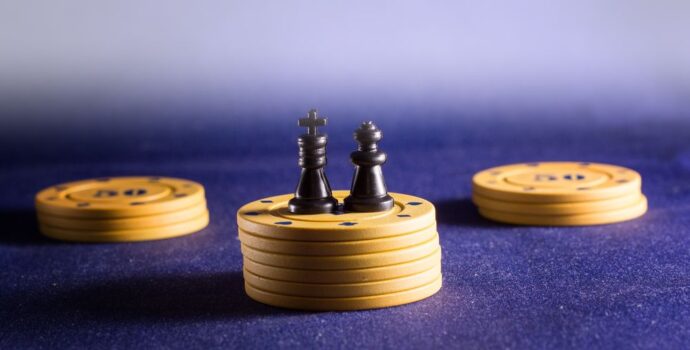
Knowing the next move of the guy sitting across you is not enough whether you play poker or chess. Moreover, it is of utter importance not to give away your plans and ideas for the game. A single smile on your face might intrigue the opposing party to consider their strategy and change it at your expense. Both poker and chess who know what they are doing are aware of that, so they dedicate years of hard work to perfecting their facial expressions. We know about the “poker face”, but we would not mind calling it a “chess face” either.
The Competitiveness
If one does not have the drive to win at all costs, then one should not waste time playing one-on-one games. Fortunately, losing a hand at a poker match does not mean that you will end up in the long run while it can bestow you with vital pieces of information on how other contestants behave when they are winning.
On the other hand, if you lose a chess match, you will not be as fortunate and your odds of recovery would be less probable. Thus, if you put a person built to do their best no matter what the cost might be, the chances they would know how to make the most of the situation are grand.
We certainly hope that you have found more resemblances between chess and poker than you have hoped at the beginning of the text. We reckon that both sides are capable of switching roles successfully, as long as they are willing to use their mental resources to the fullest while backing them up with adjusted strategies.

